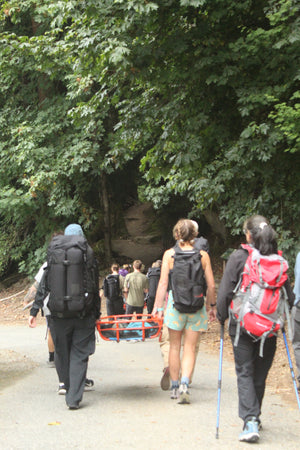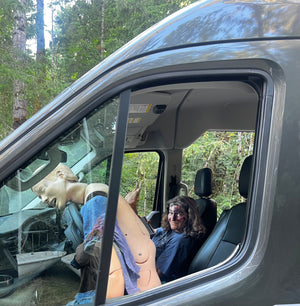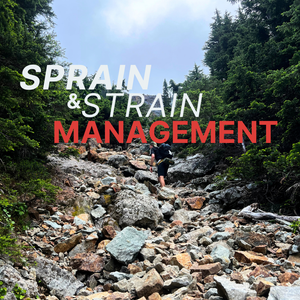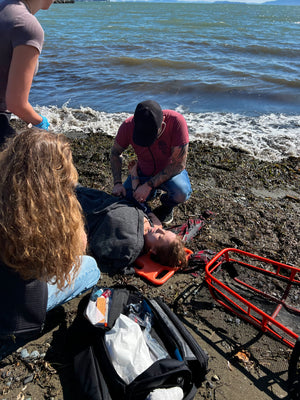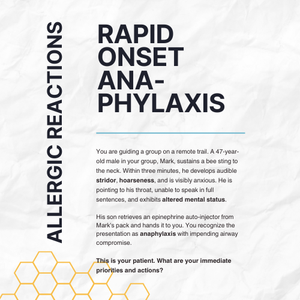REMT Hybrid Learning Experience
Combining Flexible Online Didactics with a High-Stakes Skills Intensive for the Modern Professional
The need for competent medical providers in remote and austere settings is growing, yet many aspiring professionals cannot step away from their current careers or commitments for extended residential training. The Hybrid Remote Emergency Medical Technician (HREMT) program is strategically designed to solve this dilemma. By pairing a comprehensive, self-paced online didactic phase with a mandatory, in-person skills intensive, the HREMT model delivers the same high-level curriculum and standards as a traditional course but with the flexibility required by today's professionals.
The Hybrid REMT program is an innovative, three-phase solution that respects the student's time while rigorously enforcing skill mastery. It deconstructs the learning process into logical components, allowing for maximum efficiency and effectiveness.
Phase 1: Online Didactic Learning (Self-Paced, ~75 Hours)
This phase builds the complete theoretical foundation of a Remote EMT. Leveraging a robust online learning platform, students engage with the entire curriculum through a dynamic mix of video lectures, readings, interactive case studies, and knowledge assessments. This self-paced format allows students to master the "why" and "what" of remote medicine on their own schedule, ensuring they arrive at the in-person training fully prepared for practical application.
Phase 2: In-Person Skills Intensive (Immersive, ~88 Hours)
This is the crucible of the HREMT program. Knowledge is transformed into instinct during a demanding, multi-day, in-person block. This is not a review; it is an intensive application of theory. Students are immersed in hands-on skill stations and high-fidelity scenarios, including complex daytime simulations and high-pressure night exercises. The focus is entirely on the "how"—the physical execution of medical skills under realistic stress.
Phase 3: Clinical Rotation (Real-World, ~10 Hours)
The final phase validates a student's training in a live medical environment. By completing a 10-hour rotation on an ambulance or in a clinical setting, students interact with real patients, work alongside seasoned healthcare professionals, and gain invaluable insight into the pace and dynamics of emergency services.
Curriculum: Uncompromised Standards in a Flexible Format
The HREMT curriculum is identical in scope and depth to our immersive program. The delivery method is different, but the outcome is the same: a competent and confident provider. During the in-person skills intensive, students will master the hands-on skills essential for prolonged field care, including:
Wound Closure Techniques: Practical application of suturing and stapling.
Foley Catheterization: Sterile procedure and management.
Intravenous (IV) Access & Saline Locks: Establishing and maintaining lines.
Supraglottic Airway Devices: Airway management for unresponsive patients.
Medication Administration Protocols: Hands-on practice with field-appropriate medications.
Integrated Scenarios: All skills are woven into prolonged field care simulations to build critical thinking and leadership.
The Ideal Hybrid REMT Candidate
This format is engineered for the disciplined, self-motivated individual who needs to balance high-level training with an active personal or professional life.
It is ideal for:
Currently employed professionals seeking to add a critical medical skillset.
University students or individuals with inflexible schedules.
Experienced outdoor leaders and international travelers who need a time-efficient pathway to certification.
The Hybrid REMT program proves that flexibility does not require a compromise in quality. By intelligently separating theoretical learning from practical application, it offers a modern, efficient, and rigorous pathway to NREMT certification and a career in remote medicine. Graduates emerge with the same level of competence and confidence as their immersive-course counterparts, fully prepared for the challenges of providing care far from definitive help.
